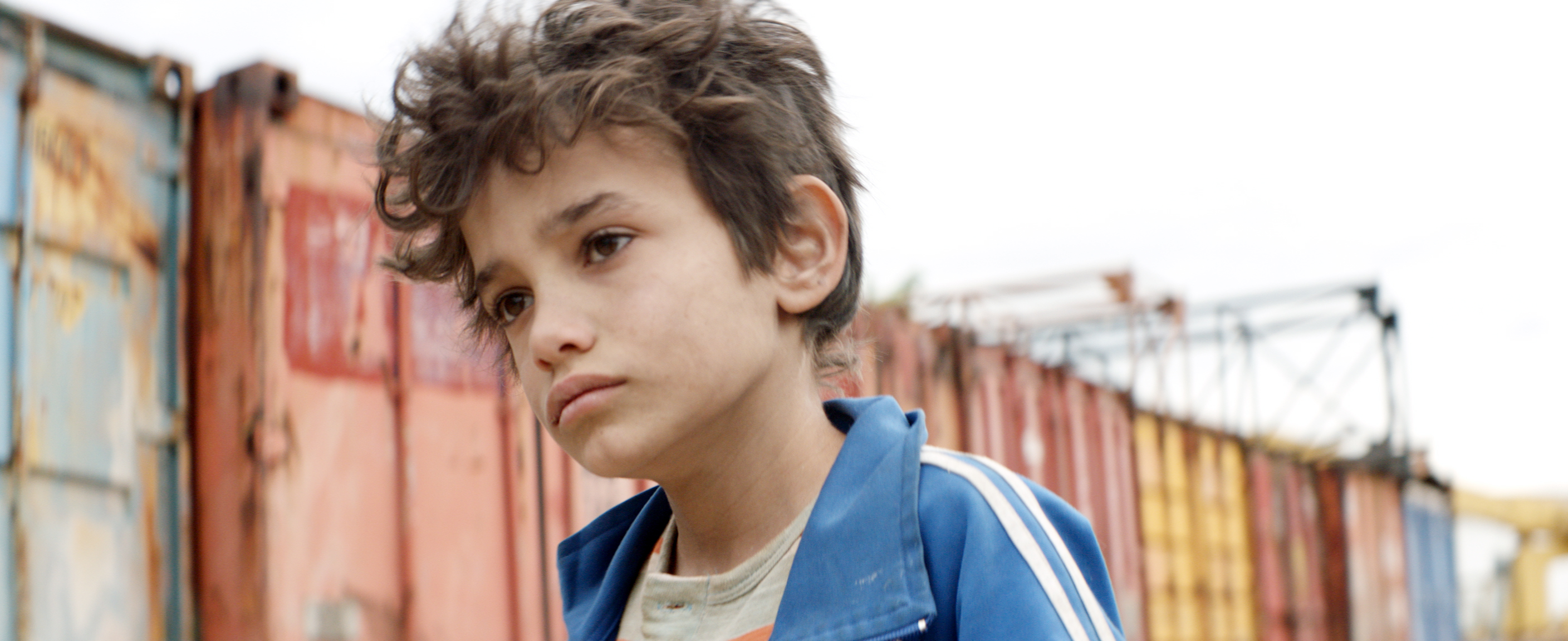I met Nadine Labaki – an impressive film maker from Libanon, the winner of the prize of the jury in Cannes, now nominated for the foreign Oscar – who is on tour with her new film „Capernaum – City of hope“. We talked about a lost generation of refugee children in the Middle East, the responsibility of the Western civilization to help and about her methods to work with these incredible children.
The Vortex: Mrs. Labaki, Congratulations on creating this moving and important film and also – thank you! This is a film, you will not forget so quickly, probably never. You are telling the story of Zain, a 12-year old kid, who is living in poverty and fighting to survive in the streets of Beirut. On top of his own struggle, he is taking care of another little one year old child which he meets by coincidence. The story took my breath away. The specialty and authenticity of the children while „acting“ is very impressive. How did you find these protagonists for your film?
Labaki: My intention was to work with children who were going to be part of the mission of the film. It was important to understand why they are telling the story. It was very important for me that the actors have almost lived in the same situation and suffered like the characters in the film. You cannot teach a child suffering, you cannot teach them abuse or what to feel – so what is our mission in this film? What are we trying to change? As soon as I saw Zain (the male protagonist) it was very obvious to me, that it had to be him. The casting director saw him while playing on the streets with his friend. The wisdom and strength that he has, the way he is, his body language, his eyes, the fact that he was a bit smaller than his age because of lack of nutrition, all those things I had in my head, when I was writing the script. At this point I almost had the feeling that it was impossible to find him. But we found him – he was exactly all this.
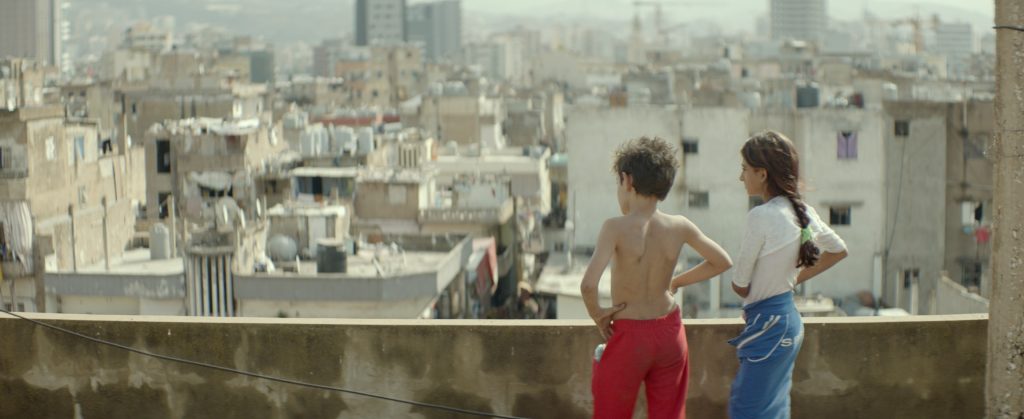 On top of their house in Beirut, Zain and his sister are finding some rest to finally talk to each other. ©AlamodeFilm
On top of their house in Beirut, Zain and his sister are finding some rest to finally talk to each other. ©AlamodeFilm
So Zain is a refugee himself, not a professional actor?
Zain is a Syrian refugee living in Libanon in very difficult circumstances for the past eight years. He has never been to school when we started shooting the film he couldn’t even write his name, which is only three words. He cannot call his house a house, he used to sleep on the floor in very bad conditions. The only difference from the film is, that his parents are good people. They were able to somehow nurture him and give him the kind of affection or at least the warmth that he needs.
So you found them on the streets?
Yes, all the portagonists were from street castings. We went everywhere and looked for the actors, we were alert all the time to find our actors in real life and it happened.
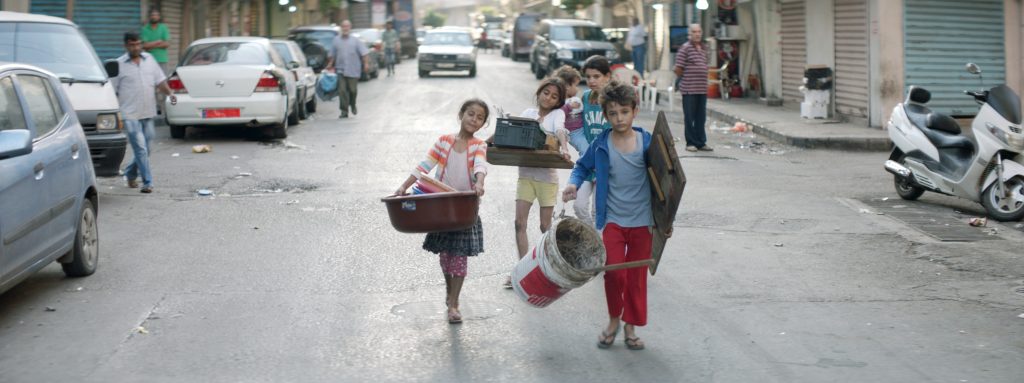
And how did you work with them? Do you have a certain method that works well for you? It seems to me, that acting comes so naturally to them.
My method starts with falling in love with the characters in real life and being fascinated with them, with who they are and everything about them. It creates a very intimate relationship and it gives them wings. They feel loved, they feel important and they feel they have something to say. In Zains case, the same day before coming to the shoot, he had to struggle to even exist, he did not have papers. So legally he didn’t exist. All of a sudden he is on a film set and he feels loved, he feels important, he feels he has something to say. He feels he is on this mission and that it was also about his own fight. So I think, that is my method in a way. Also you have the choice between paralyzing them with text and by giving them strict rules, or you give them the freedom and space to be themselves. I think I know when to shoot and what to shoot. I know, how to ignite certain reactions, how to put them in certain situations in order to get them. Especially with the baby, it is something you cannot explain, it is somehow organic. The fact that I am also a mother is also important, to know children and how they function. My daughter was Jonases age when I started to shoot and my son is almost Zains age. And having an amazing crew who is able to capture all that and also to be mobile was a gift. If you look at the making of, the crew was working like dancers, tipping around those kids – amazing.
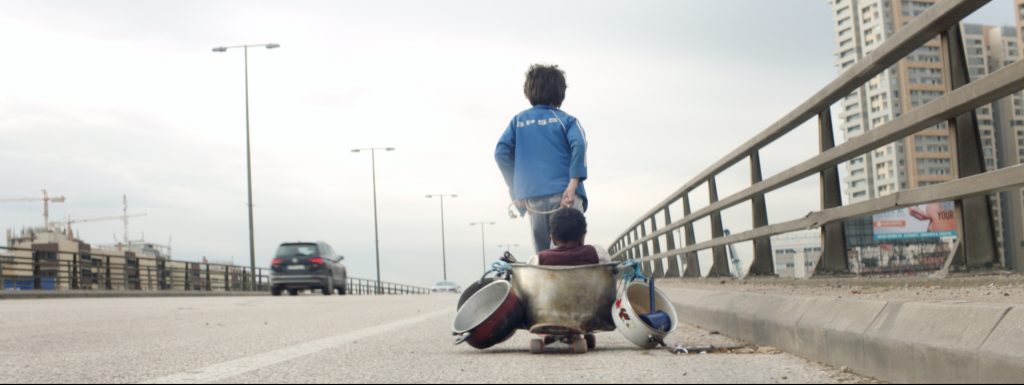
While watching the film, I was wondering – what is your message? You are holding a mirror to peoples faces, telling them to look closer to reality, not to look away and it makes us feel bad seeing what we see. I felt so numb and thought: what can we do? What do I do with this knowledge now and these feelings? Why are we not doing anything, why are we turning away from this suffering? And I thought at the same time, I cannot do anything against it. What kind of consequences should people take from this? What is your aim?
Yes, it is exactly what you are saying and going through. Feeling what you are saying and what you saw. After the film, you are not the same person anymore. Something inside of you has changed forever. I was once coming back from a Party in my car, it was one o’clock in the morning. I stopped at red light and I saw this child sitting on the streets with his mother. He couldn’t sleep, but all he wanted was to be able to. He was sitting there going up and down with his head. It was so uncomfortable for him and I thought, when did we get to this point? We are depriving him from his most human right, which is to be allowed to close his eyes and sleep. How can we continue living while this is happening? How is that even possible? Why I am allowing this to happen? So I went home and started asking myself. What do I do with myself now, with this anger? And I started to write the script for this film.
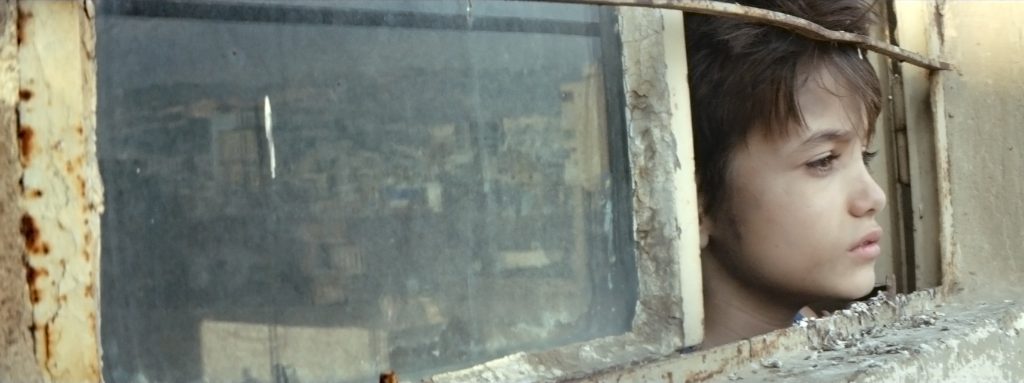
In the end in the film Zain is saying in court, where his parents are being accused: I want to sue my parents for giving me this life. Please stop having more children. He is blaming his parents for all of his pain. Is that an answer to this?
Of course not! He is not only criticizing his parents, but a whole system, bringing him to this world. He is talking to everybody, saying: wake up to your responsiblities, as parents, as society, as humans. Talking to everybody. What do you do with the united nations convention of childrens rights? It says, when a child is born it has the rights to have an identity, to eat when he is hungry, to have the affection of his parents, to go to school, to even play, to have a surface, where he can play. Where is the playground of these children? Is it the half meter sidewalk, where Zain is growing up and learn about life? Experience life? What happened to those conventions? The solution is to think, ok what is my responsibility towards this life? You know we always talk about the adults rights to have children, okay – but what about the childs rights to have a decent life? Why is it unbalanced like that? We have to look at these children, they are suffering and that is beyond what we can imagine. What we see in the film is nothing, to their torture, to their abuse, their rape, the beating, the kicking, the disrespect which they are experiencing. Reality is a lot worse! These kids don’t even now their date of birth. Something we cannot imagine for ourselves. When you ask the child, when are you born and they say: I don’t know, something like eleven. My mother told me I was born on a rainy day. So that means also, they have never celebrated their birthdays. They don’t even know, they are important to anyone. They say about themselves, that they are trash. Nobody gives a shit. Why do we allow this, seeing children on the streets sniffing glue? And you look into those eyes, where there is no childhood anymore. Why do we allow this? It does change you working with them everyday, I am not the same person anymore.
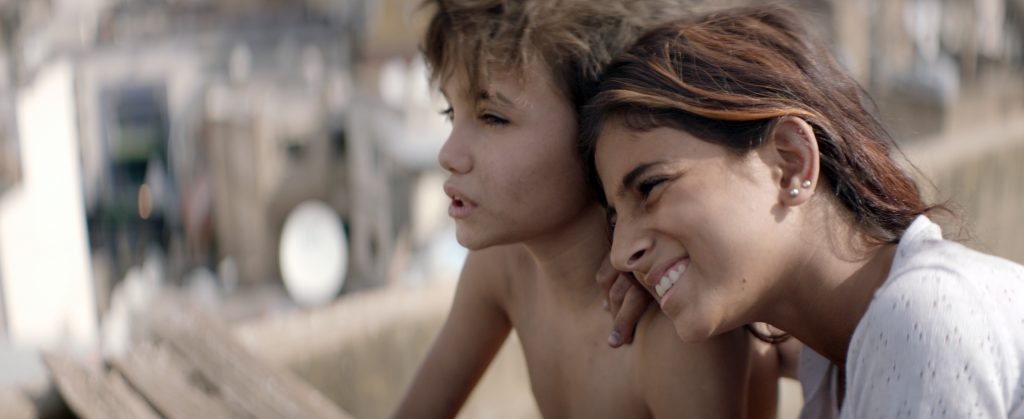
But there is also a bit of hope in your movie at least. Would you say, you can change something with your film, with art? Somehow you didn’t give up on that.
Absolutely. I really do think so. Even if it will not change anything, I want to believe that it can. It gives me the strength to go on and to say, at least it can open a debate, a conversation about it. At least we should say loud, that we are angry. You can go to the government or the ministry and say, look how these people are struggeling – look what they are going through. Wake up to your responsibilities. This it what we are planing to do! I hope it will do something. I might not, but at least it gives you strength. If you ask me, what can I do about it: just do anything – whatever you can! Whatever you think is good to do. It even gives me strength wo wake up in the morning and say, ok I am going to do something about it. But I am trying to make a change in an alternative way. I am not a politician.
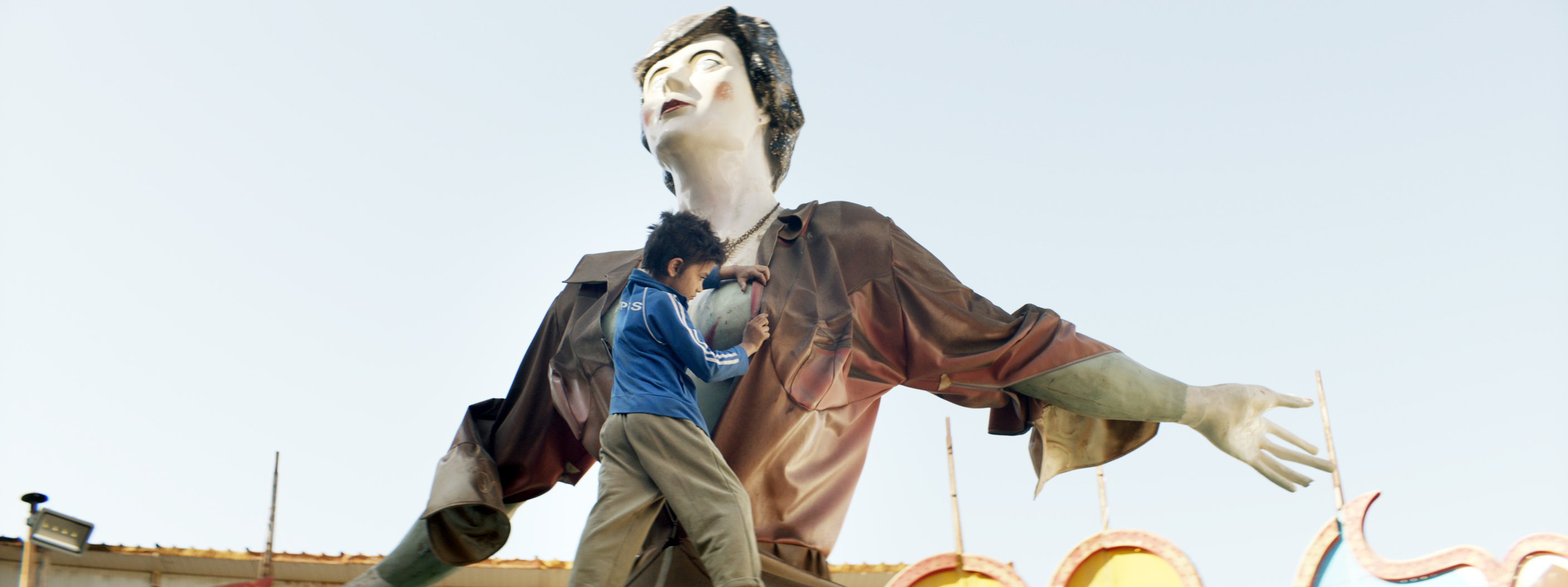
There is many references in the film, symbols like the swimming pool that they are sleeping in, the amusement park, in which Zain is running around, in the bus he meets spiderman, who is an old and funny guy. Why did you choose these pictures?
It is something unconscious which comes to you while writing the script. They stand somehow for a forbidden childhood. These are elements of childhood, of children, but at the same time these children are not allowed to be children or to have a childhood. Zain is not allowed to have fun or even to be in the luna park. He is physically there, but not taking part in the amusement process. The other kids are laughing, but he cannot, he is not allowed. He is left out and just an observant. The same thing with Spiderman, this super hero who is not a hero, because Zain will not see him in action. The same thing with the pool, they are not swimming in it, but sleeping. It is their bed.
Thank you very much for the interview Mrs. Labaki!
